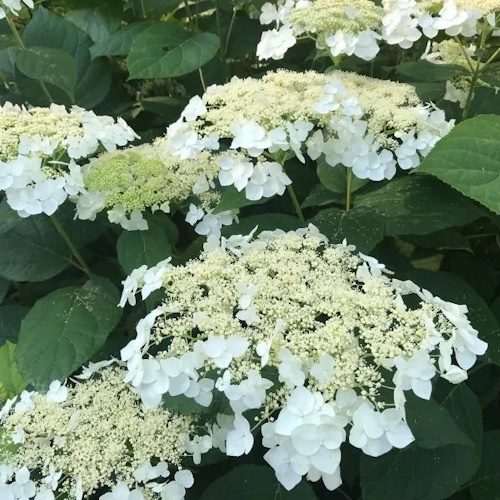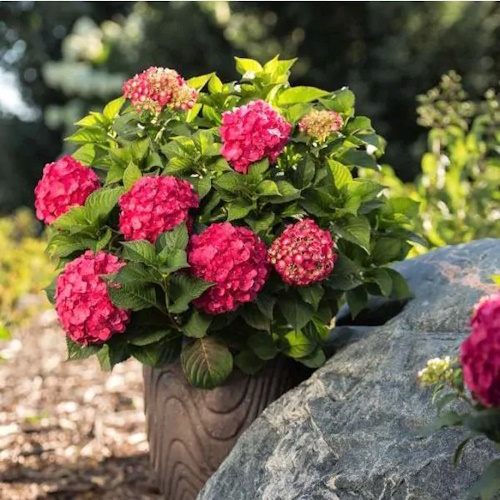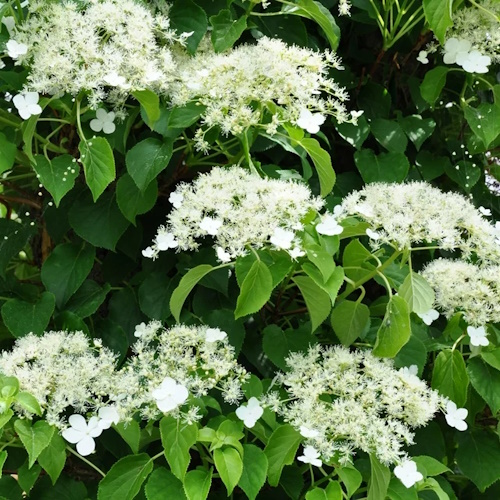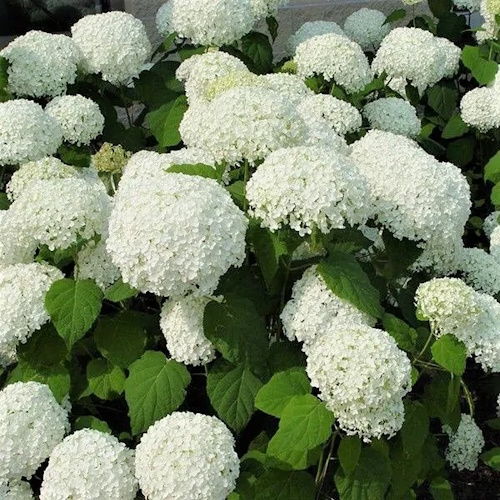Landscaping with hydrangeas – 12 ways to design with these beautiful blooms
With so many varieties available, landscaping with hydrangeas is always a good idea. Find out how to work them into your garden design with spectacular results

Rachel Bull
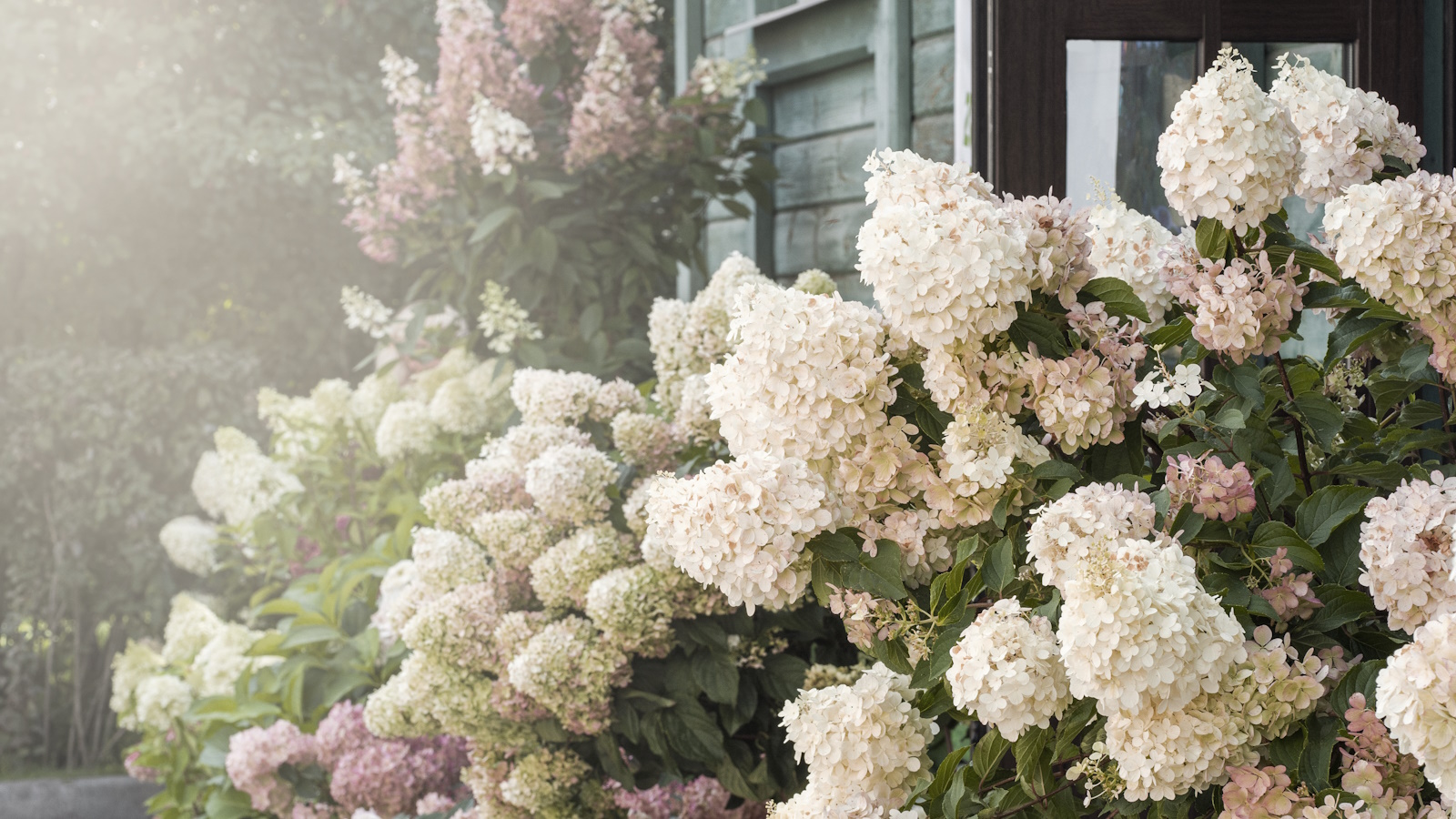
From lining paths to perking up garden borders, landscaping with hydrangeas is a wonderful way to add beautiful color and eye-catching structure to your backyard. In recent years, hydrangeas have shaken off their somewhat old-fashioned image and have been reinvented as an essential flowering shrub to include in your garden design schemes.
It's easy to see why too. With so many different varieties and colors to choose from, hydrangeas are one of the most versatile shrubs around to work into your landscape design. They can be used in a multitude of ways, from star of the show to elegant supporting role in a planting combination. What's more, they have a long flowering season, and lush, textured foliage.
It doesn't matter what size of yard you have, or whether it's sunny or shady, hydrangeas can easily be worked into your backyard landscaping ideas. Here's how to get more of these stunning blooms into your outdoor space.
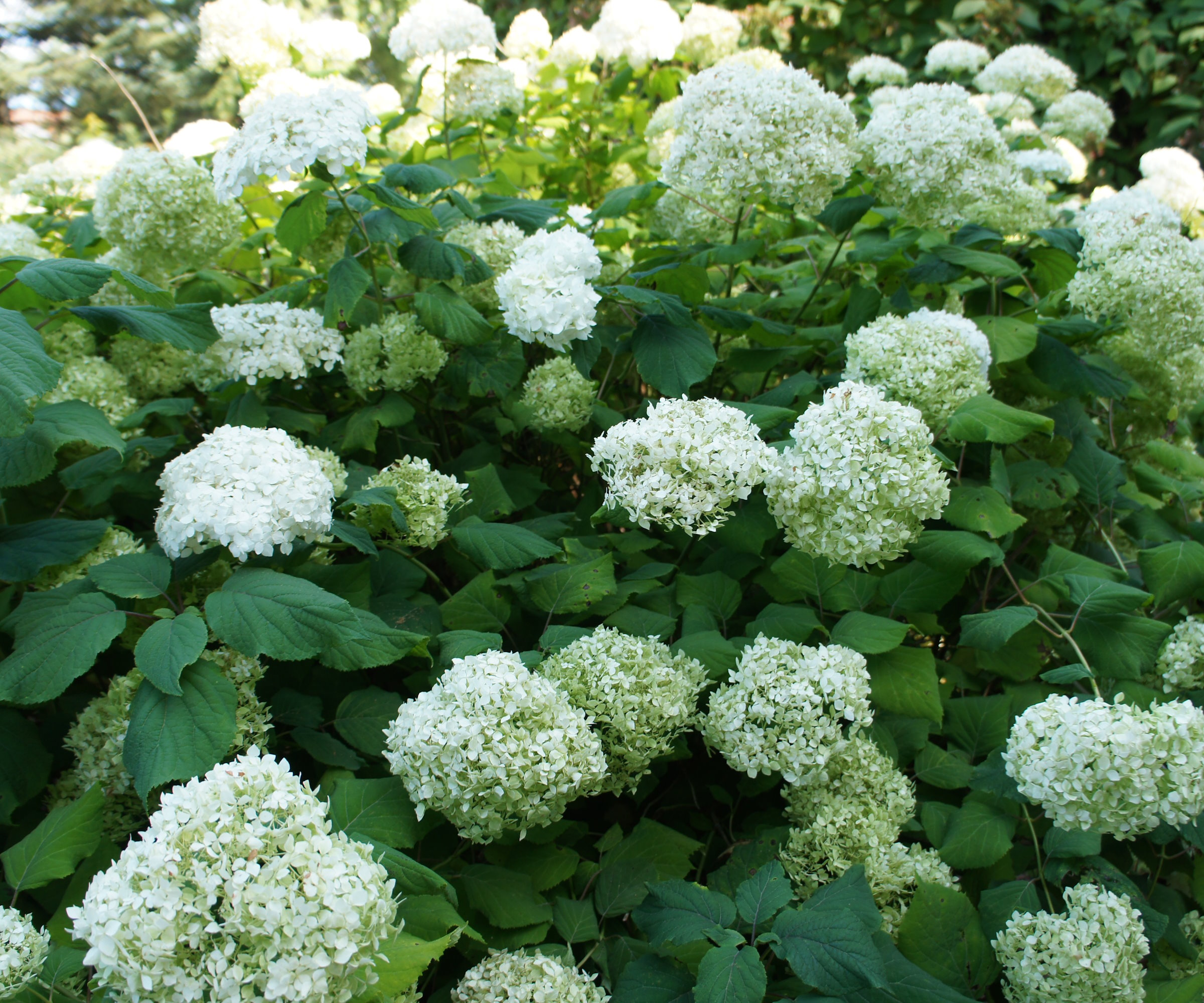
12 gorgeous looks for landscaping with hydrangeas
We've brought together all the inspiration you need, whether you're searching for front yard landscaping ideas to add curb appeal, or simple ways to pep up your garden with an injection of pure style.
1. Line a winding path with romantic lace cap hydrangeas
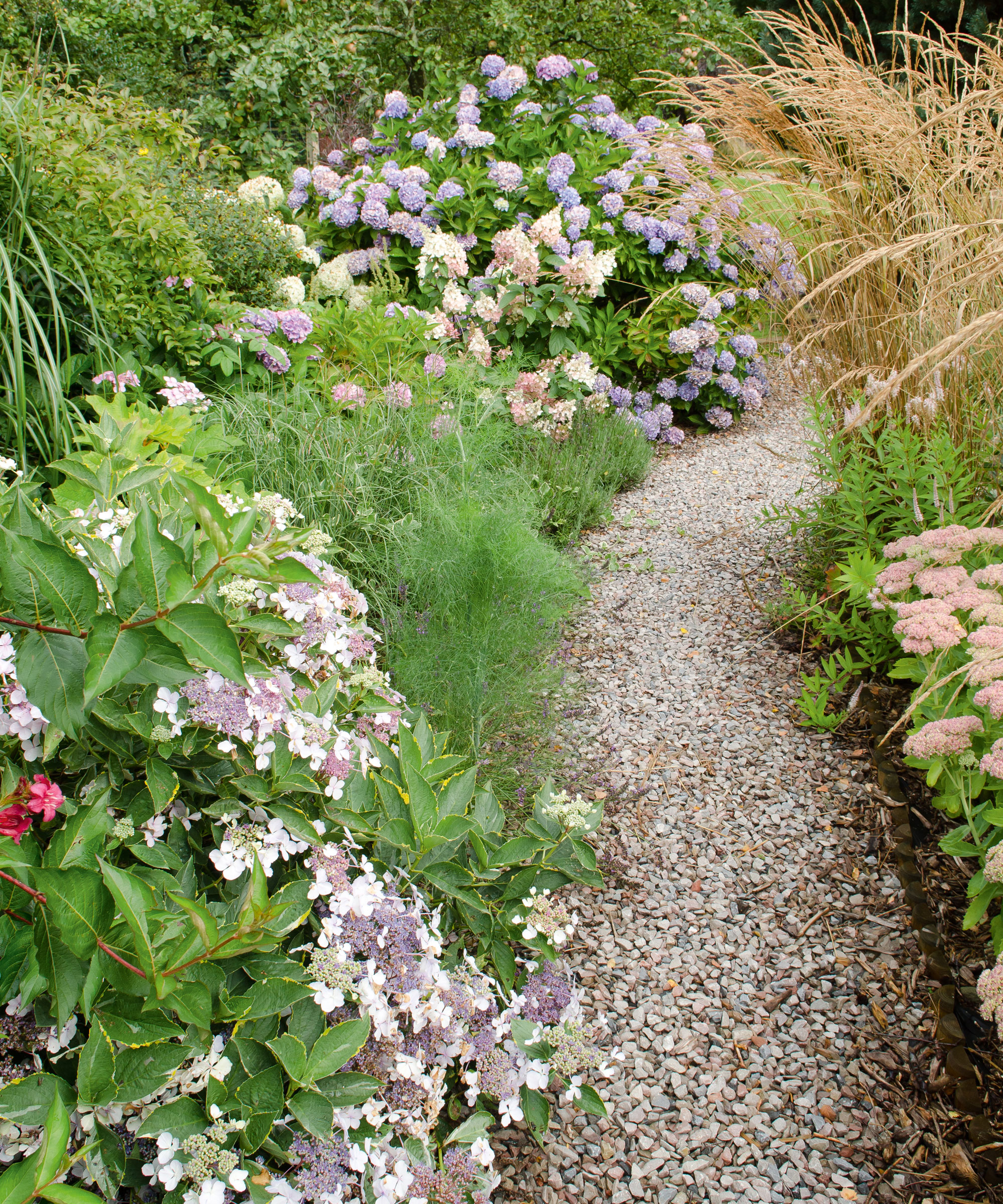
The lace cap hydrangea has a lovely, vintage feel. Its flattened flower heads have frilly edges rather than the rounded, pompom blossoms that are more usual choice to go for when learning how to grow hydrangeas. The center of each bloom features dense clusters of tiny flowers and these are surrounded by florets with larger petals.
Their growing requirements are the same. Lace caps prefer a part-sun, part-shade location, with rich, well-draining soil that's moist. A site with morning sun and afternoon shade is ideal.
Lace caps are hardy plants that work well for landscaping borders, especially if you let them flop over on to paths as a feature in your gravel garden ideas. They come in the usual range of colors to suit your scheme, which will veer towards pink or blue according to the pH of your soil type.
Design expertise in your inbox – from inspiring decorating ideas and beautiful celebrity homes to practical gardening advice and shopping round-ups.
2. Add an attention grabbing focal point
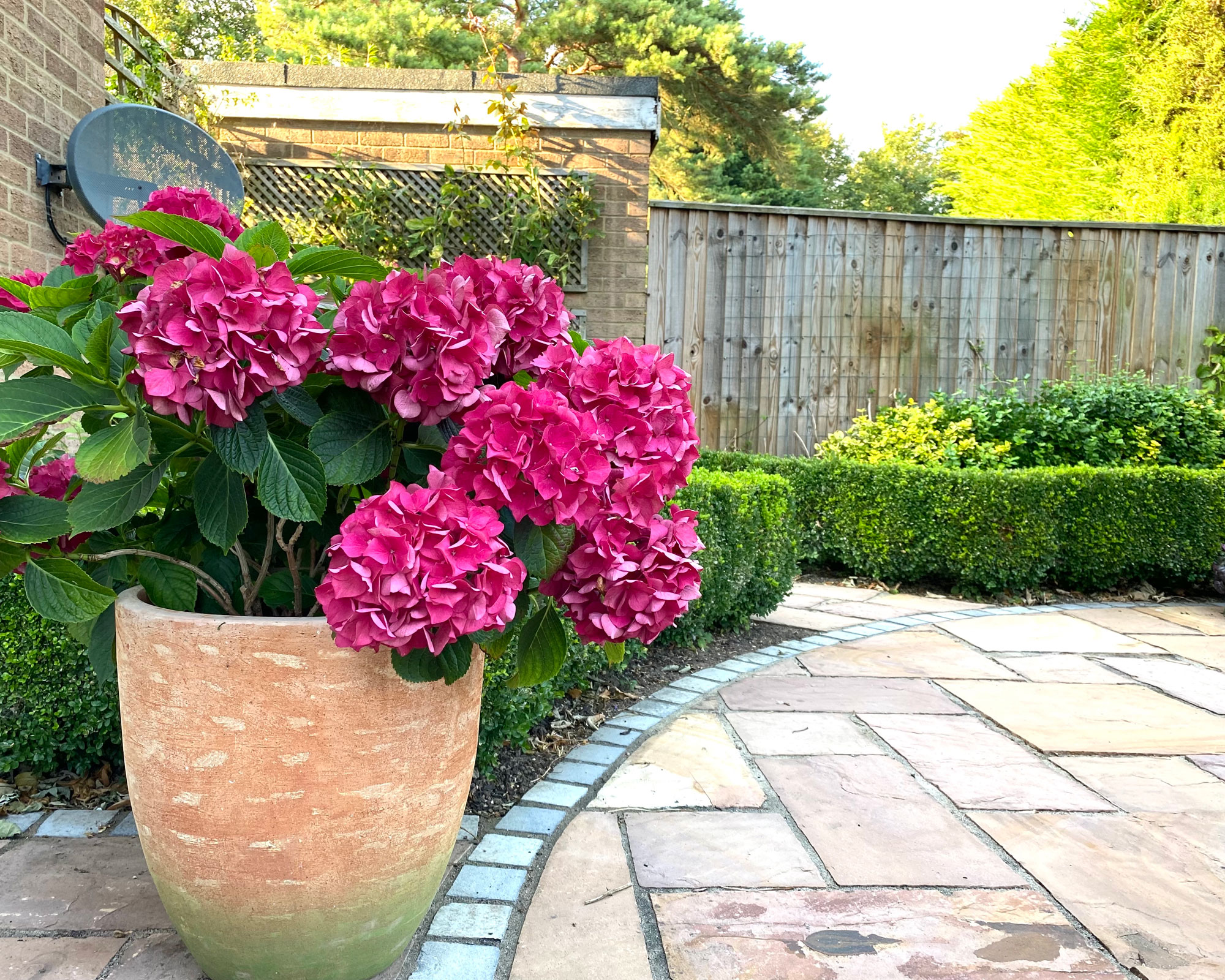
A hot pink hydrangea such as 'Elliott's Red' or 'Magical Ruby Red', which both have massive blooms, makes an eye-catching feature potted up in a large container. If you prefer blue, white or even lime green there are plenty of other varieties to choose from too.
The joy is that if you plant a hydrangea in a pot it's moveable, so you can position it by the front door as a big and bold welcome then switch it to the patio or into a border to fill a gap as other plants come and go.
Mop-headed hydrangeas are well suited to container gardening ideas and will thrive in partial shade or sun. They will produce long-lasting clusters of flowers too, from mid summer to mid fall.
3. Introduce luminous white hydrangeas into shady spaces
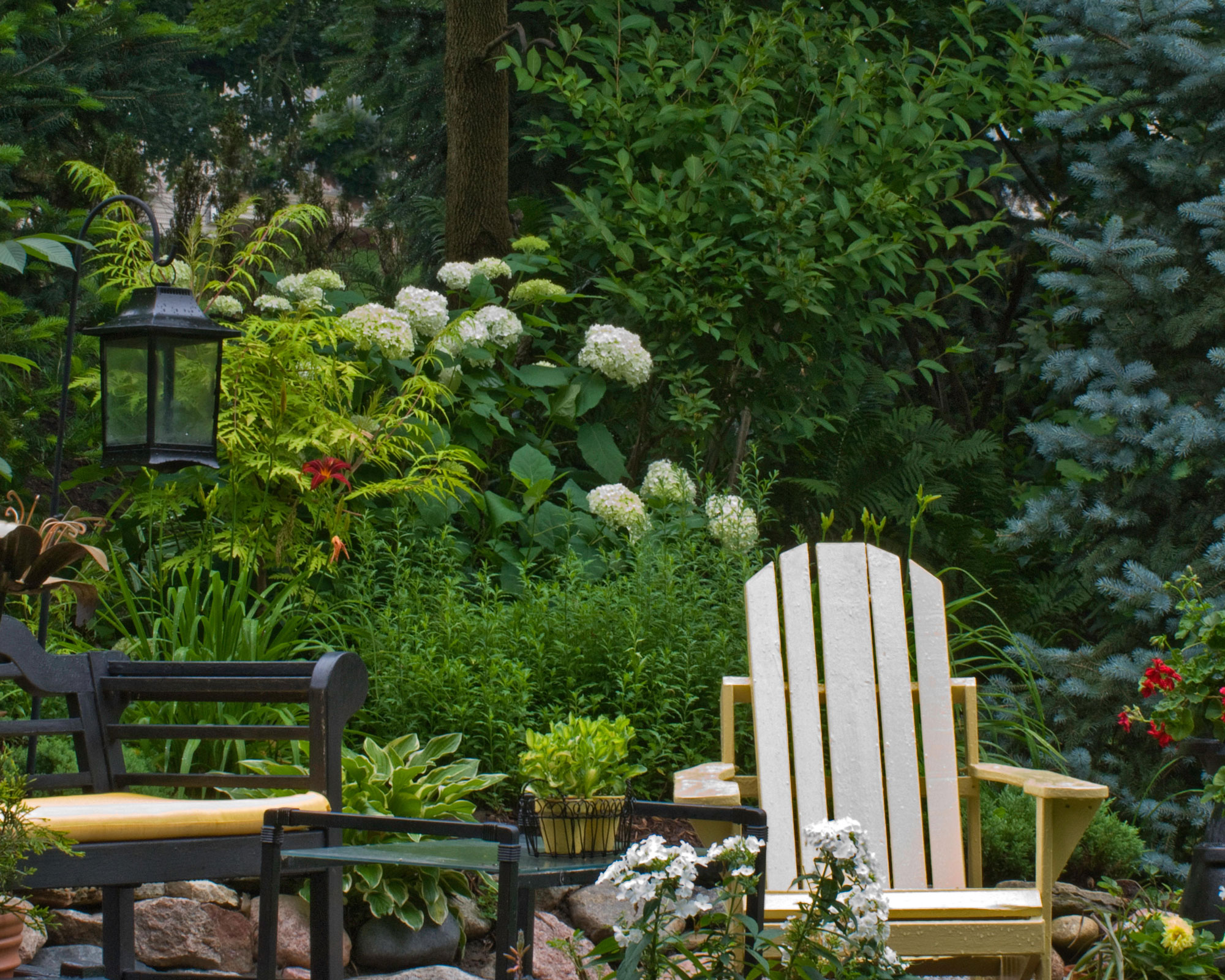
Plenty of varieties of hydrangea will thrive as part of your plans for landscaping with shrubs. They may not be covered in as many blooms due to being exposed to less sunlight, but instead of a densely packed bush they develop a more floaty, airy structure that's just as pretty for landscaping purposes.
White flowers are a good choice as they add a luminous quality to gloomy spots to lift your shade garden ideas and make a focal point among dark green foliage.
'Hydrangea paniculata ‘Limelight’ is usually a bushy shrub that prefers full sun or partial shade,' says Susanna Grant author of Shade: Bloom Gardener's Guide (available on Amazon). 'In my garden, with just a few hours of afternoon light, it’s a much airier-looking plant, and I prefer it this way.'
4. Fill gaps in borders fast
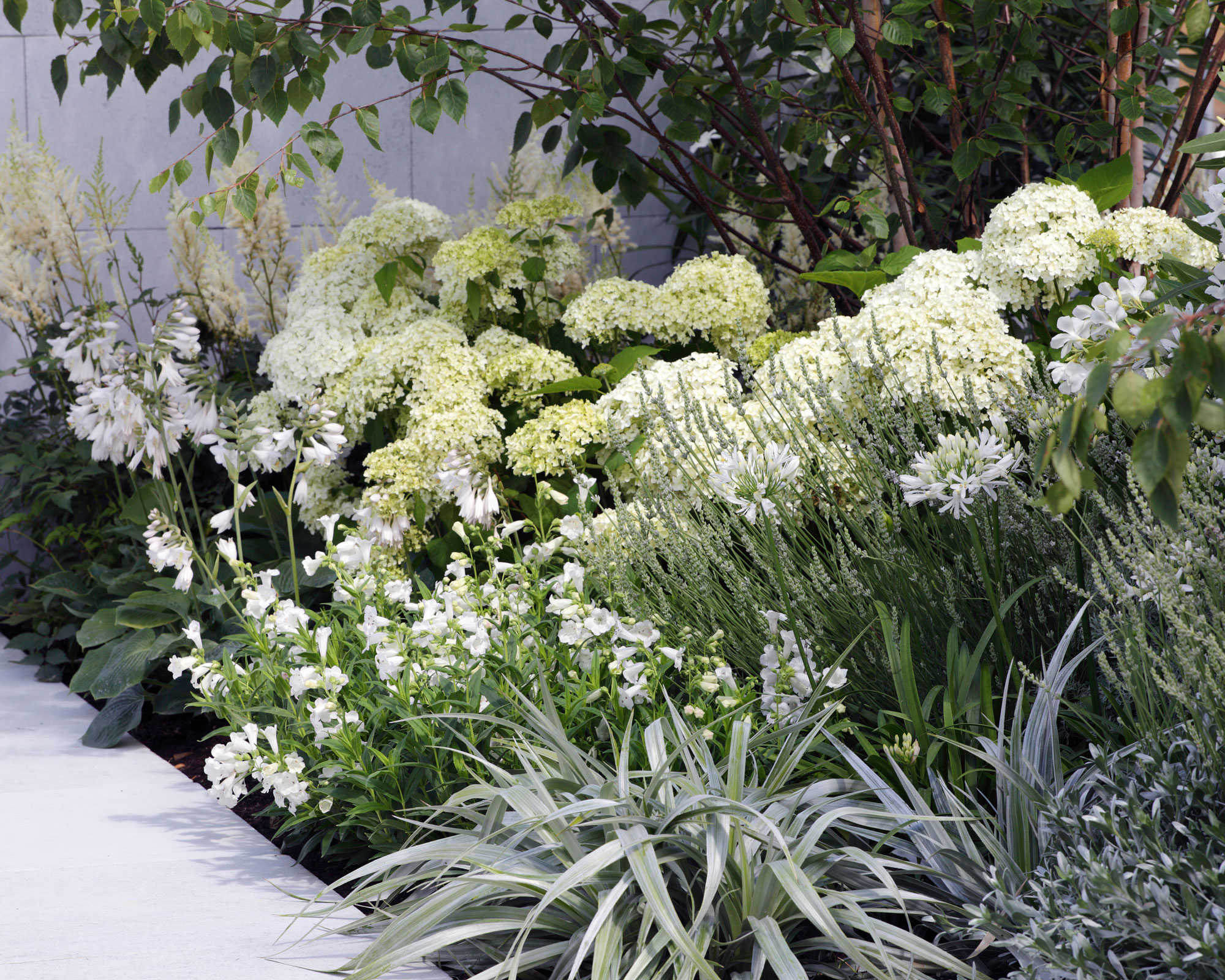
The hydrangea should be your new favorite plant if you're aiming for a full look in your garden borders and don't want to wait. Reaching up to 15ft (4.5m) in height, the hydrangea grows quickly and works well as a space filler in just one summer with its leafy foliage and huge blooms.
Hydrangeas are classified as rapid growers, with some varieties growing an average of 25in (60cm) per year until they reach maturity.
They partner well with sun-loving agapanthus, as well as part-shade loving plants like astilbe, penstemons, foxgloves, hostas and ferns. Why not choose all-white flowers for an instantly co-ordinated scheme. Hydrangeas are also great for landscaping with grasses if you want a more unstructured look.
5. Use hydrangeas to transform an entrance
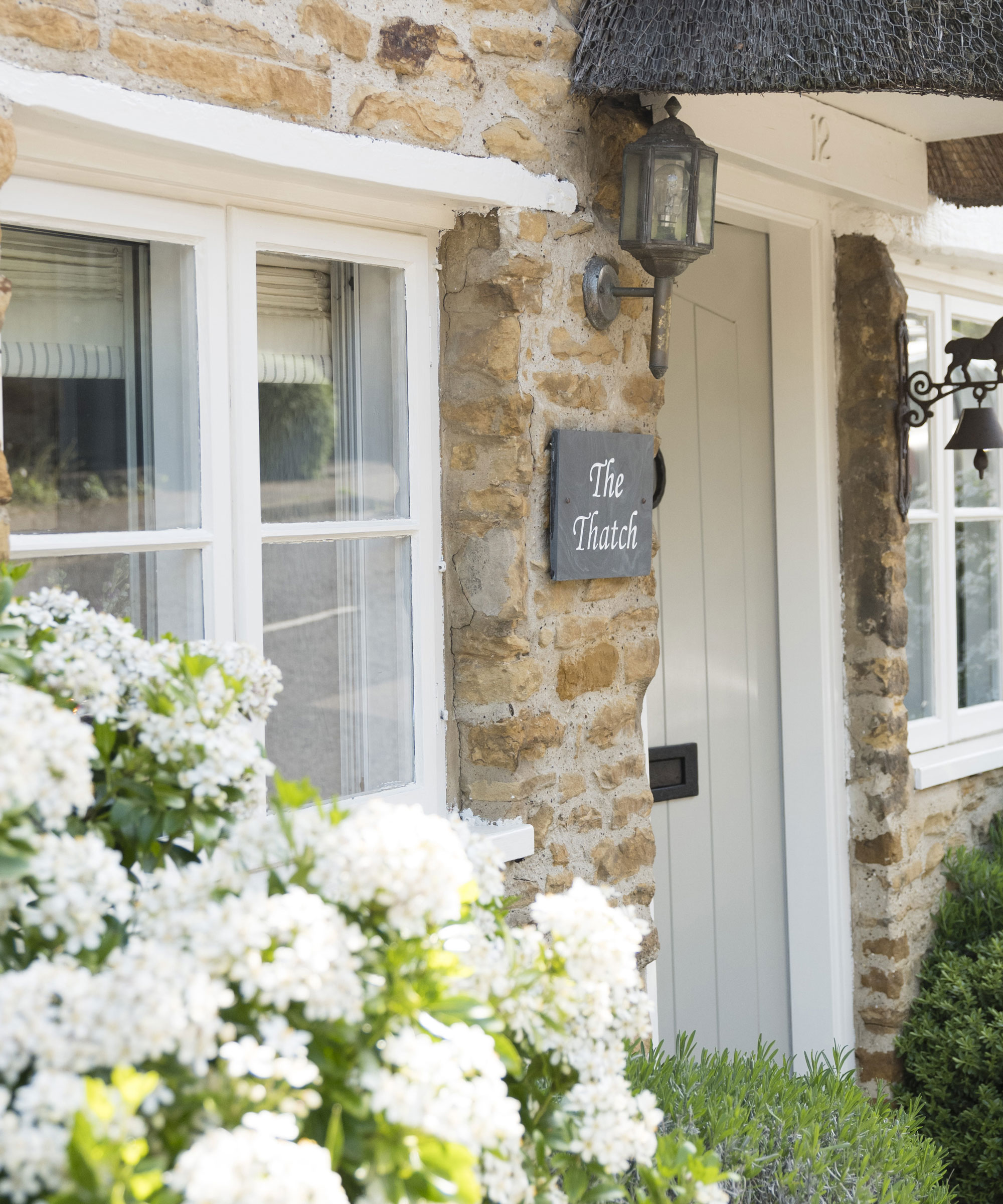
A hydrangea in full bloom makes a stunning welcome home as part of your front porch ideas. If you're looking to frame your front door, give your entrance personality or add curb appeal this is the plant for you. It works potted up in the porch or as a pretty detail in borders.
Hydrangeas smarten up any entryway. If you want to plant them in a container choose one that complements your home’s style and color, and make sure it’s large enough to make a statement and be seen from the street, such as the oakleaf hydrangea.
If you're adding hydrangeas to front garden borders they are good for seamlessly fitting into your landscaping and will soon look like they have been there for ever.
6. Screen a section of your plot with a climbing hydrangea
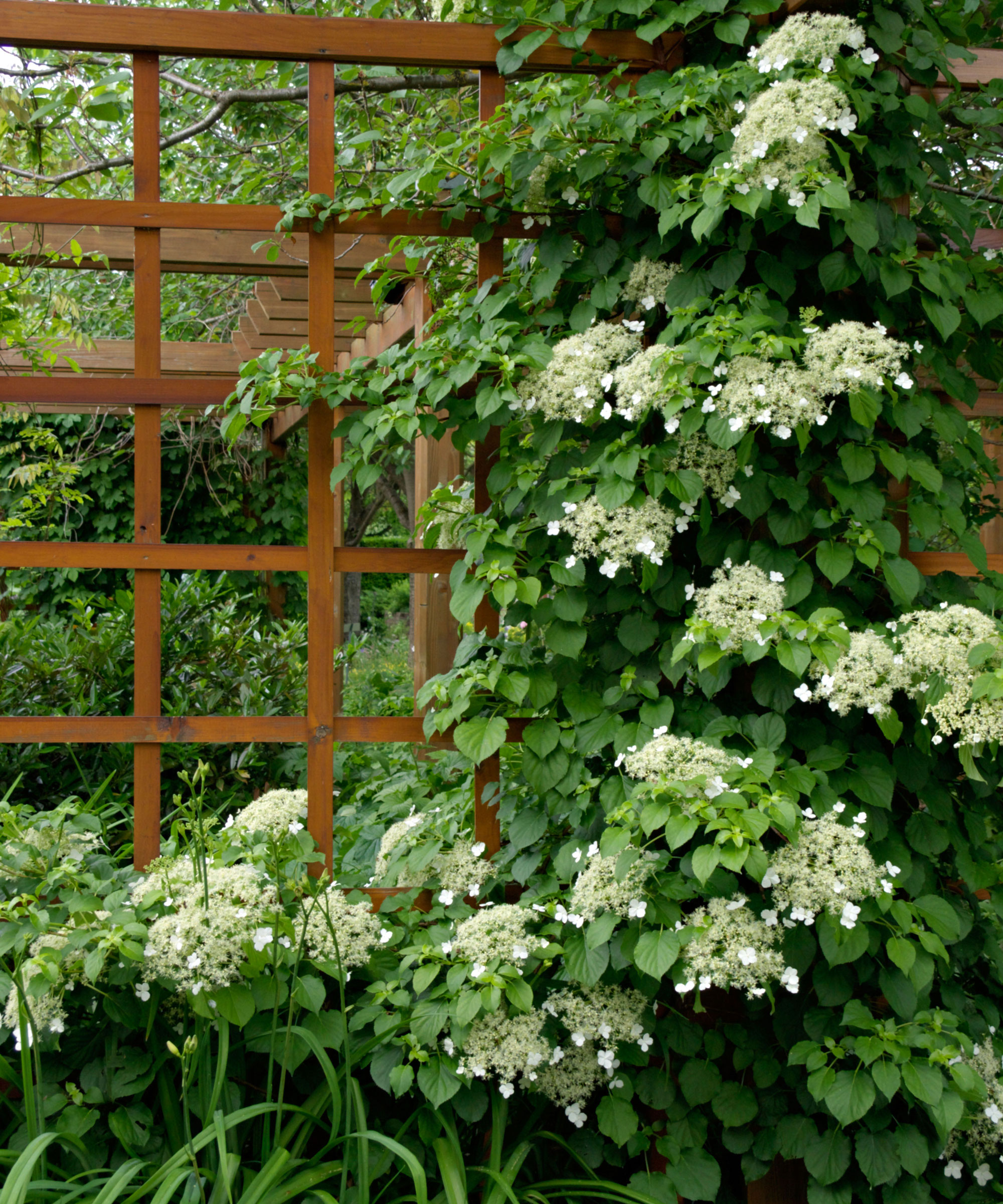
Climbing hydrangeas grow vigorously and are a quick way to cover a north-facing wall or fence to take your boundaries up a notch. New plants usually need support such as wires or trellis attached to the wall or fence until they become established so tie in new shoots to start with. They are one of the best climbing plants in terms of being low maintenance.
They grow well in sun or shade, and as well as the attractive leafy foliage the pretty flowers are a bonus. Some evergreen climbing hydrangeas such as Hydrangea seemannii and Hydrangea serratifolia offer year-round interest so put them first when it comes to landscaping with hydrangeas. But it's worth pointing out that they do need a warm, sheltered position to thrive.
7. Make hydrangeas the star of a small garden
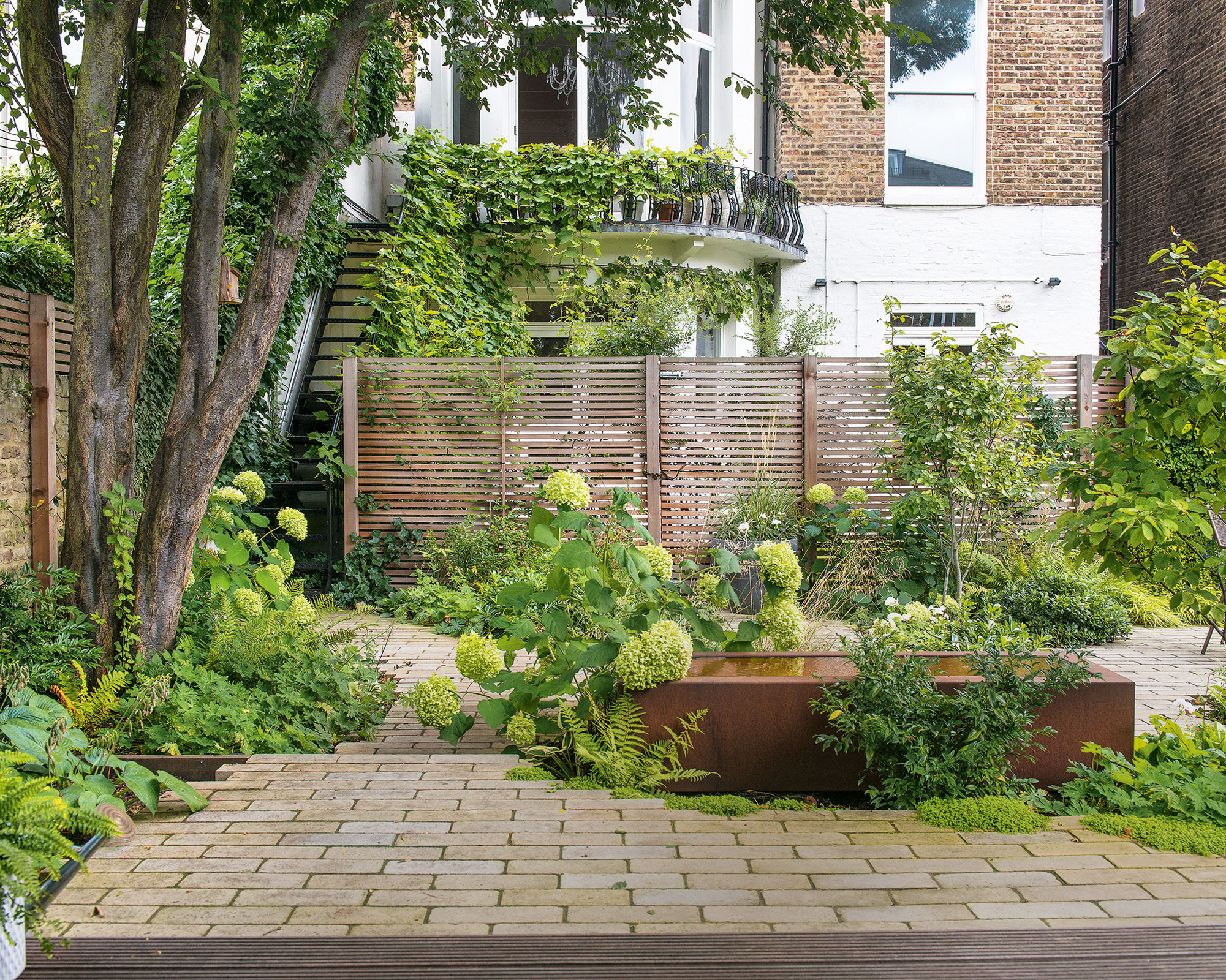
If space is tight in a courtyard garden, terrace or rooftop, make sure the plants you choose punch above their weight and really deliver. In terms of looking good, and being long-flowering and low maintenance you can't beat landscaping with hydrangeas if you want a hard-working plant.
The lime green ones such as Hydrangea arborescens 'Lime Rickey' and Hydrangea paniculata 'Limelight' add a cool contemporary edge to urban spaces, and this variety also comes in a 'Little Lime' version to suit smaller gardens.
They also work well with Corten steel pool landscaping and contemporary paved backyard ideas, and are a good choice if your garden is shady or overlooked as they thrive in partial shade too.
8. Glam up steps with symmetrical planting
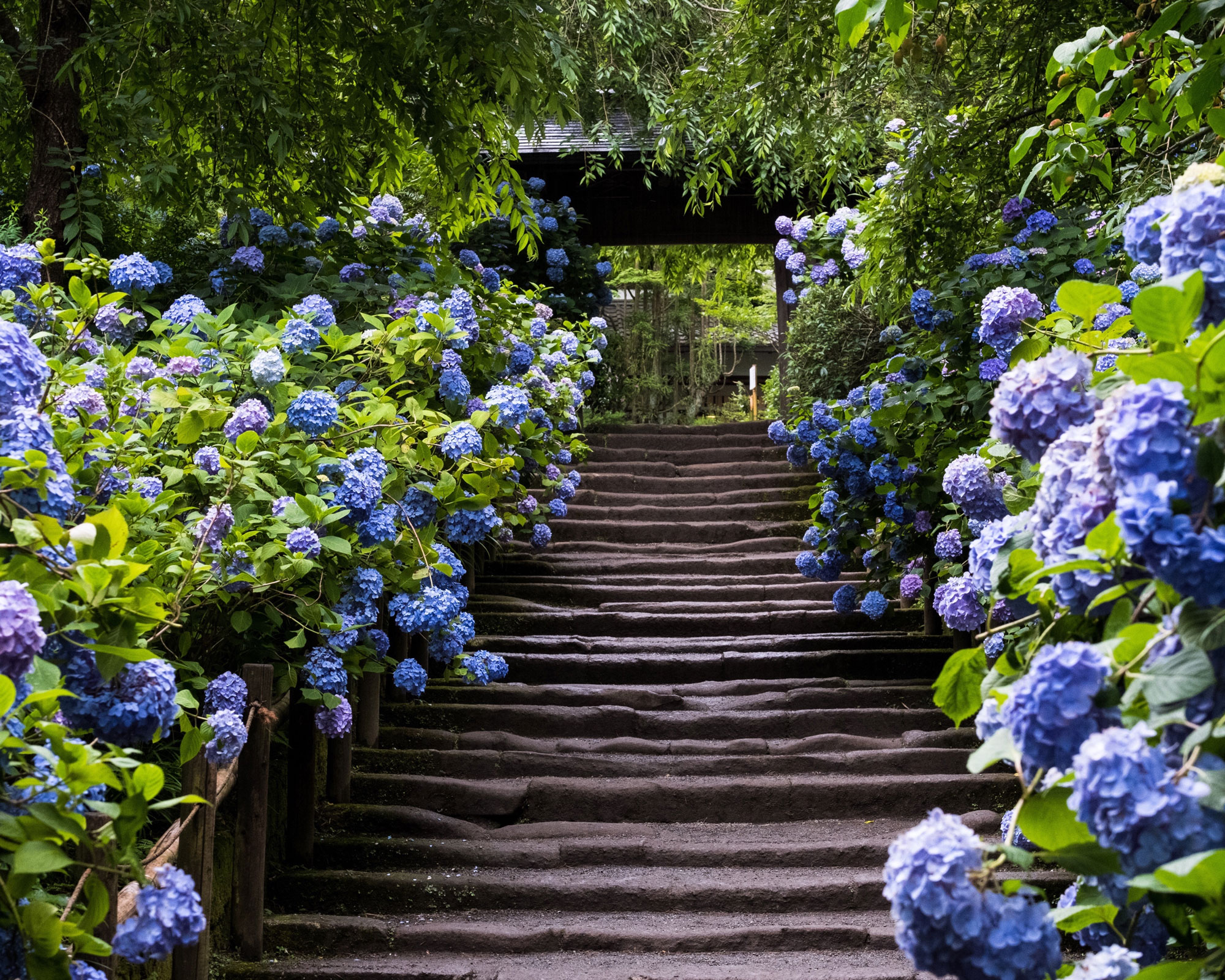
If you have a split-level garden, framing the steps either side with the same plant really works a look. The idea of creating a stairway of blooms is one of our favorite landscaping with hydrangeas looks.
For stunning, deep blue blooms choose a variety like Hydrangea macrophylla 'Blue Danube' which has large, showy dinner plate sized flowerheads that are 8in (20cm) across and grow up to 39in (1m) in height so are good for garden edging ideas in a project like this.
Remember that an acidic soil will give blue flowers, whereas an alkaline soil produces pink blooms. The easiest way to acidify your soil and turn them blue is with aluminium sulphate from the garden center.
9. Use hydrangeas for repeat planting
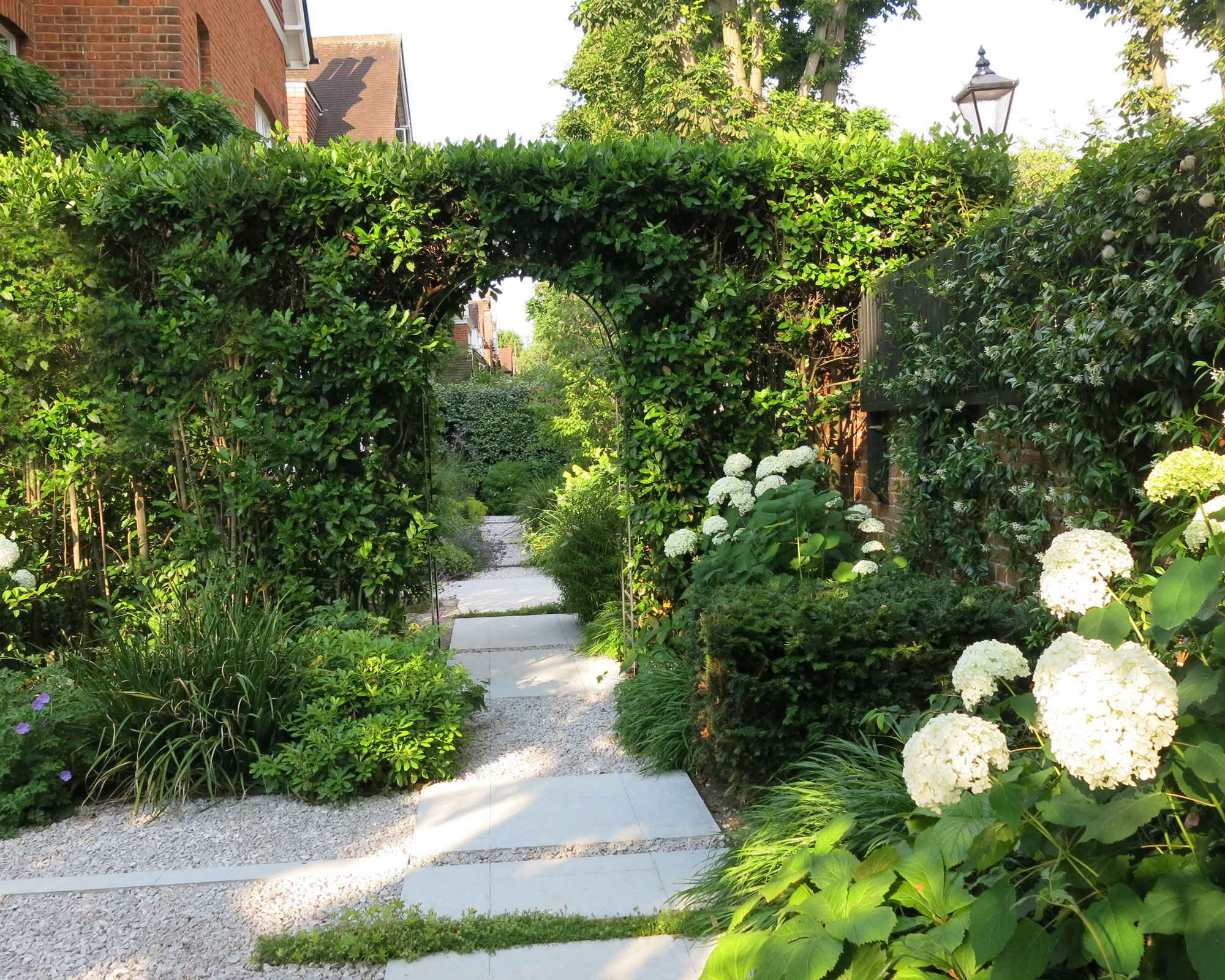
Dot plants at repeat intervals throughout your borders to create a cohesive theme that adds a professional touch to your planting. A trick used by garden designers is to always apply the rule of three when it comes to planting shrubs, and this works particularly well if you're landscaping with hydrangeas.
Choosing just one plant of a particular variety is one of the more common landscaping mistakes. Instead, an odd number of plants (three or more) can be arranged in an irregular cluster, which looks more natural than a straight line or block shape, and results in more a more dynamic planting style.
10. Disguise a boundary
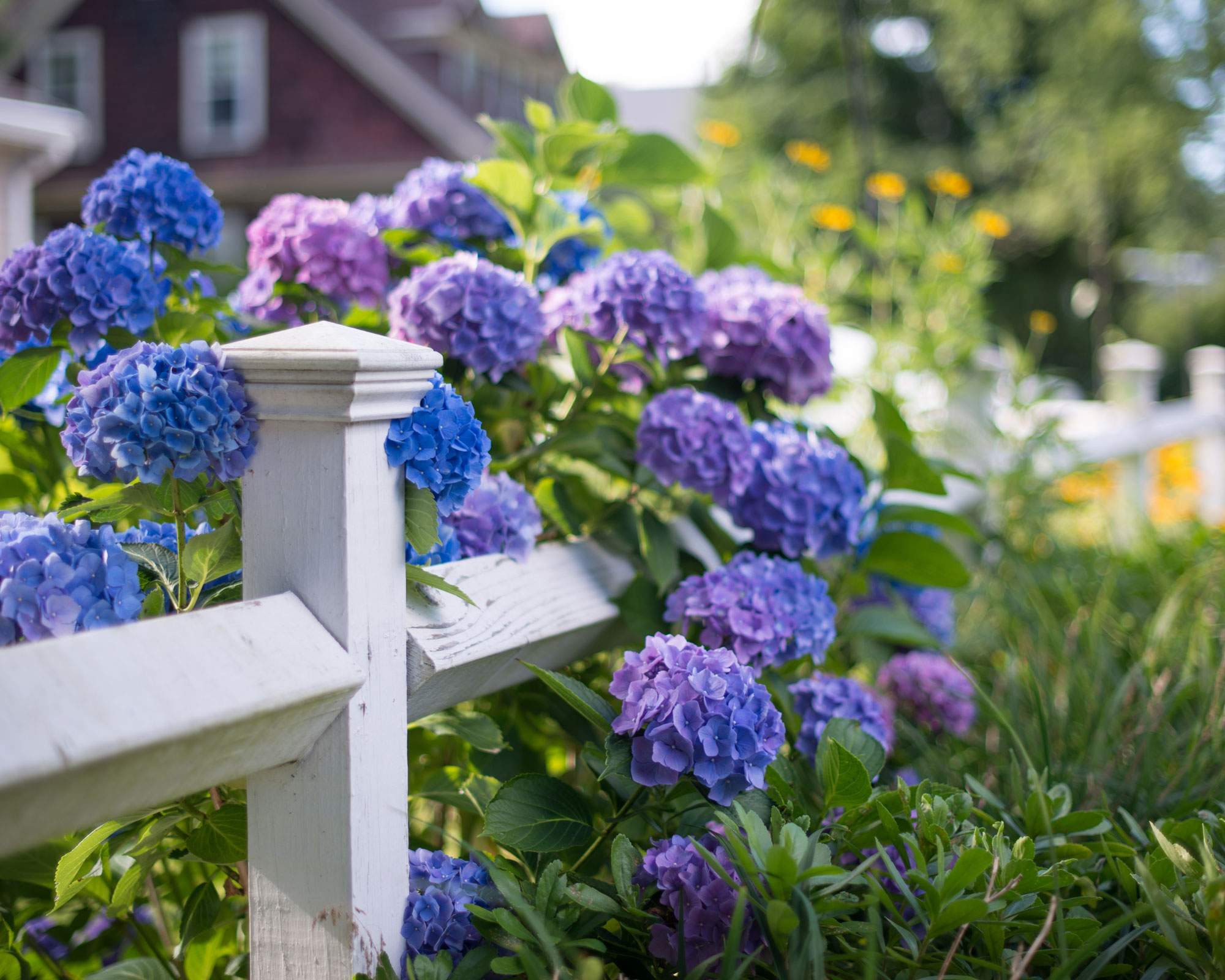
A froth of hydrangea blooms tumbling en masse over a white picket fence looks fabulous, softening the hard edges with pretty detail.
It's a way of beautifying painted wood with a vintage vibe that's straight out of Anne of Green Gables, so be sure to include it in your inexpensive landscaping ideas. It works a treat in cottage gardens too, for a truly a dreamy way of landscaping with hydrangeas.
11. Style up an alfresco dining spot
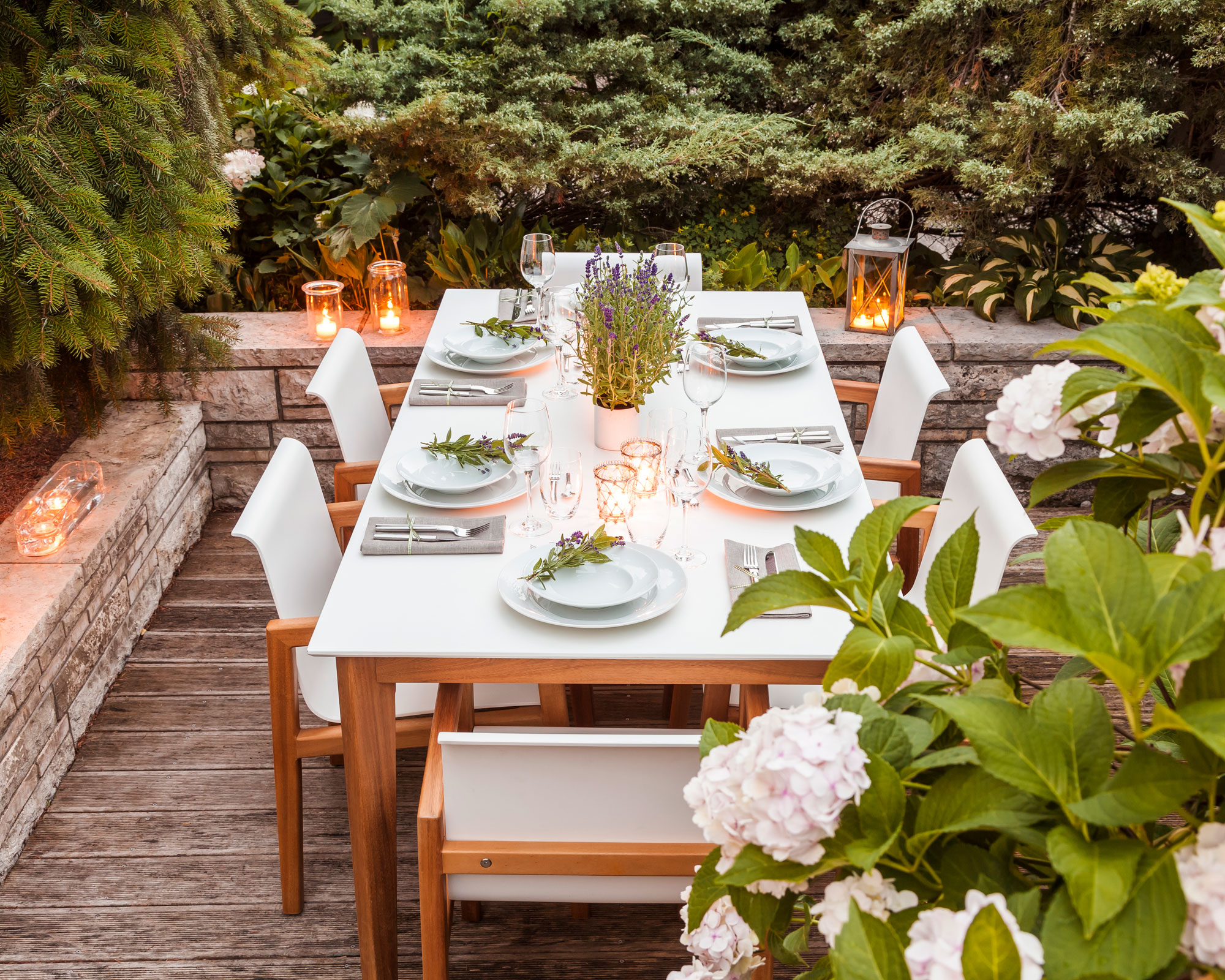
When it comes to summer lunch in the garden, if you're making the effort to pull together an elegant look that will be appreciated by your guests you definitely need hydrangeas in the mix.
If you're aiming for a more formal table setting with crisp white china and stylish glassware, choose big bloomed snowy white hydrangeas to set the scene to perfection. As well as styling up the space with large pots of them, snip a few blooms to create an additional centerpiece. Nothing beats seasonal blooms hand-picked from the garden to elevate your outdoor dining ideas.
12. Underplant trees with hydrangea ruffs
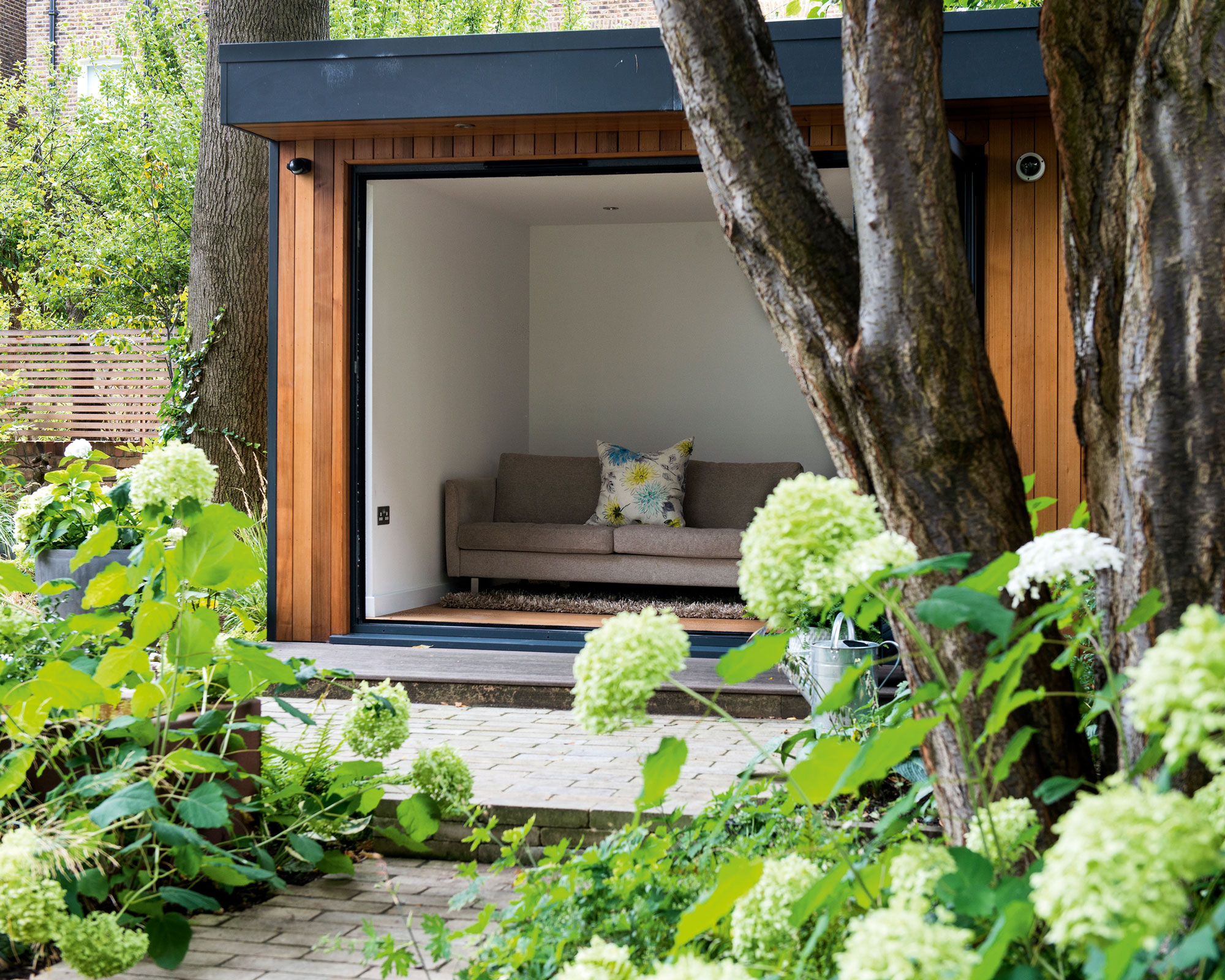
Although many varieties of hydrangea grow tall they can still be a good choice for planting under trees where they will enjoy the dappled shade. Go for a popular variety like Hydrangea arborescens 'Annabelle' for landscaping around trees. While it can grow to 7ft (2m) after five years, it's easy to keep it contained to the height you want with regular snipping.
If you want to try this look, elegant acer are a good place to start as the finely etched leaves contrast beautifully with the mop heads of the hydrangeas.
FAQs
Are hydrangeas good for landscaping in areas prone to drought?
If you're wondering whether hydrangeas are drought tolerant, the answer is usually they are not. They are moisture-loving shrubs and do not enjoy overly arid conditions. Their ideal spot is dappled shade with moist but well-drained soil. Some hydrangeas are more drought tolerant than others, so if you live in a warmer climate but still want to try landscaping with hydrangeas, do your research and set a daily watering schedule.
There's no question that the options for landscaping with hydrangeas is incredibly varied and versatile. If you love the idea of landscaping your outdoor space with flowers, you might be interested in landscaping with roses, too.

Lifestyle journalist Sarah Wilson writes about garden design and landscaping trends for Homes & Gardens. She has studied introductory garden and landscape design, and also has an RHS Level 2 qualification in the Principles of Plant Growth and Development. She is a regular contributor to Homes & Gardens and Livingetc. She has also written for Country Living, Country Homes & Interiors, and Modern Gardens magazines
- Rachel BullHead of Gardens
